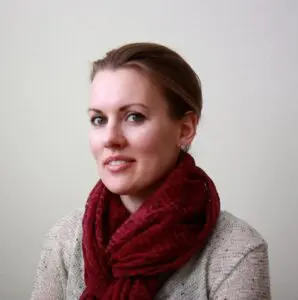 This month we spoke with Trisha Tanner, Vice President for Development at CEU, about fundraising through crises and the University’s plans for ramping up activity this autumn. CEU – a private American university in Budapest and Vienna – is experienced in persevering through difficult times. In 2017, CEU was targeted for expulsion from Hungary through legislative changes commonly known as “lex CEU.” As a result, the University was forced to transition its teaching operation to Vienna. CEU’s fundraising ramp-up is part of the preparatory phase of a five-year campaign in support of the University’s work in Austria, Hungary, and around the world.
This month we spoke with Trisha Tanner, Vice President for Development at CEU, about fundraising through crises and the University’s plans for ramping up activity this autumn. CEU – a private American university in Budapest and Vienna – is experienced in persevering through difficult times. In 2017, CEU was targeted for expulsion from Hungary through legislative changes commonly known as “lex CEU.” As a result, the University was forced to transition its teaching operation to Vienna. CEU’s fundraising ramp-up is part of the preparatory phase of a five-year campaign in support of the University’s work in Austria, Hungary, and around the world.
Q: What has CEU’s experience with lex CEU, and more recently with COVID-19, taught you about fundraising in challenging times?
A: In a crisis, you learn a lot about what your organisation means to others. After the lex CEU decision, we were awed by the outpouring of support. Thousands took to the streets, wrote letters, and signed petitions. Many also shared personal stories about why CEU matters. This strengthened our resolve. The silver lining of the threat to our academic freedom was that CEU’s global recognition soared. We were able to strengthen ties with our alumni and dramatically expand our sphere of influence. When COVID-19 hit, these ties became even more important. Supporters, many of whom had never made a gift, provided emergency assistance, including funding for technology, housing, and basic necessities for our students.
My mother always said, “you don’t know until you ask.” When fundraising through a crisis, it is critical that fundraisers not assume what a donor may be thinking. Instead, have open conversations with supporters about your organisational needs, and don’t be afraid to invite the help you need. In this pandemic, people are feeling powerless and uncertain. Philanthropy gives them a chance to make a real difference, so your ‘ask’ may come as a welcome opportunity. I also try to remember that people are often more generous when presented with an acute need.
Q: What new strategies or approaches is CEU taking to ramp up fundraising activity this autumn?
A: This autumn, our focus is on frequent and open communication, including personal outreach, virtual engagement, and regular stakeholder updates from the University. Our advancement team is finding ways to involve donors and potential supporters in ways that are meaningful to them – whether serving on an Advisory Board or participating in a focus group. We are also ramping up research and outreach to engage new prospective donors. We believe that the prospecting we do today will be critical as we build a new permanent campus in Vienna, starting in 2023. For CEU, this includes taking a fresh look at alumni who have progressed in their careers and may be ready for deeper engagement.
We also plan to offer more online events and group briefings, following up on feedback from a set of virtual town halls held over summer. For example, we’re expanding our annual Philanthropy Week into a year-long series focused on building the culture of philanthropy within our institution and across the Central European region.
Finally, we are refining our campaign case for support. We want to be bolder, more focused on impact, and more direct. In an environment where every worthy cause has serious needs, we want our message – of education empowering democracy and freedom – to resonate more strongly than ever before.